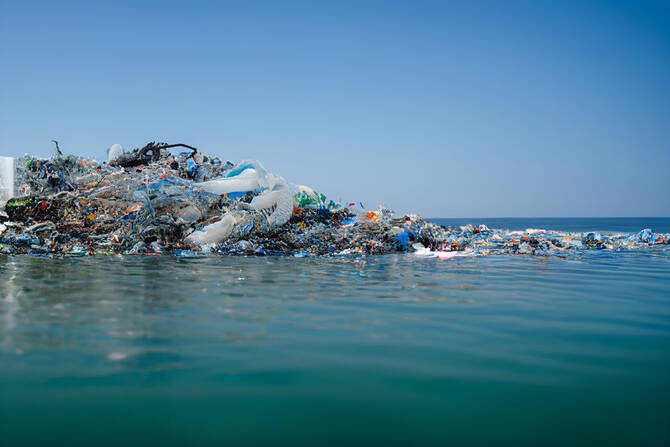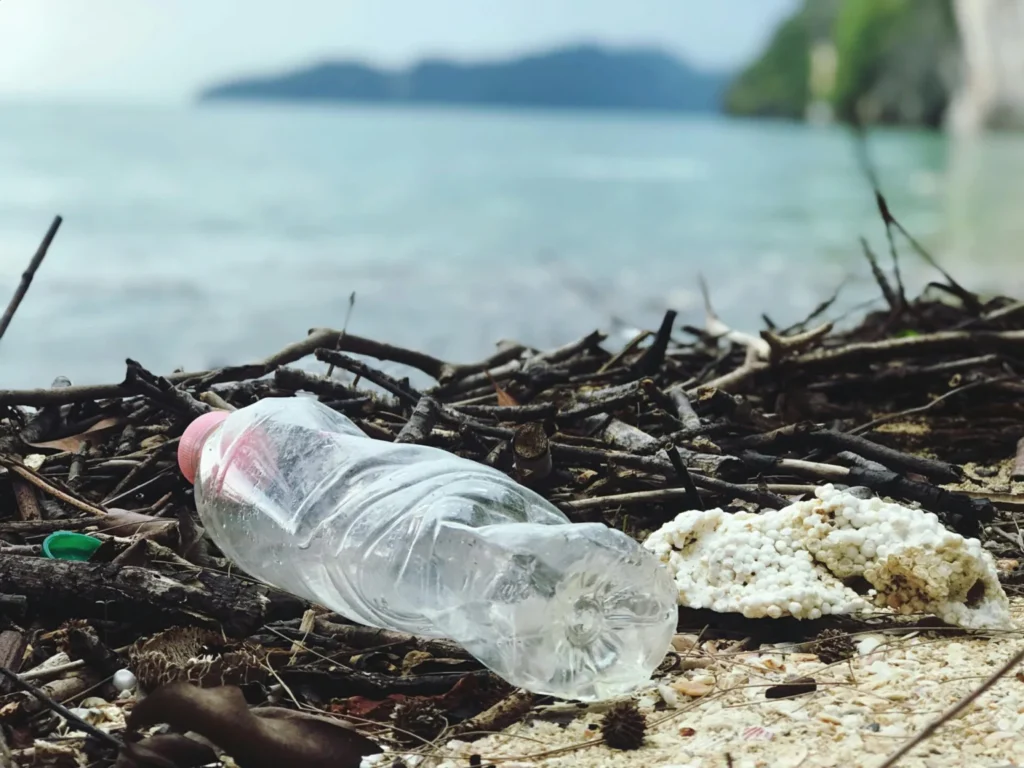
On World Environment Day, Jamie Williams, Islamic Relief’s Senior Policy Advisor on Poverty Reduction, discusses the dangers of plastic pollution in the world’s oceans and the need for large companies to be held accountable for the plastic waste they produce.
 This World Environment Day, Islamic Relief is signing Faith in the Ocean, an international multifaith declaration recognising the profound relationship between humanity and the ocean, uniting all people of faith or spiritual tradition in our commitment to protect and preserve the ocean.
This World Environment Day, Islamic Relief is signing Faith in the Ocean, an international multifaith declaration recognising the profound relationship between humanity and the ocean, uniting all people of faith or spiritual tradition in our commitment to protect and preserve the ocean.
Among the many concerns about our oceans is pollution from plastic waste.
Driven by public concern about plastic pollution and increasing scientific evidence of the resulting harm to human health and the environment, the United Nations in 2022 convened an Intergovernmental Negotiating Committee, INC, to produce international laws to control plastic pollution. This included the 10-15 million tonnes of plastic leaking into the marine environment each year – a number expected to more than triple by 2050.
Plastic drives climate change
Plastic pollution, including micro – and nano – plastics, has been found at the Earth’s highest heights and the ocean’s deepest depths. It is creating an ever-growing health crisis, with ‘forever’ chemicals in plastic products and waste leaching into the human body and the natural environment, creating havoc for hormone, digestive, and nervous systems. In 2022 there were reports of plastic particles found in human lungs and blood, and a 2021 report found microplastics in human placenta.
Discussions at the fifth session of INC-5 in November last year were meant to reach a new agreement to end plastic pollution. They didn’t. As we wait for the meeting to restart this year, the mountain of pollution, which grows through the whole life cycle of plastic, continues to grow and wreck to our environment and our bodies.
Plastic production relies on oil, making corporate plastic use a direct driver of climate change. Progress towards a treaty on plastic pollution has been hindered by a row over the need to include cuts to the $712 billion (approx. £610 billion) plastic production industry in the treaty.

At previous talks, high-income countries were accused of bowing to pressure from fossil fuel companies and industry lobbyists to steer clear of any reductions in production. Instead, they argued that reducing pollution is a question of how the plastic is made and what happens after it is sold and used.
Coca-Cola, the world’s top branded plastic waste producer, acknowledged in 2022 that reusable packaging was “among the most effective ways to reduce waste” and committed to a goal of reaching 25% reusable packaging by 2030.
But that pledge was quietly dropped in its latest sustainability roadmap, released in December 2024. The company’s updated goals instead focus on increasing recycled content in packaging and boosting collection rates – while stressing the significant challenges in recycling soda bottles and shifting consumer habits.
Shifting the blame
Environmental advocates have long warned against over-reliance on recycling, arguing that it often serves to shift blame on to consumers rather than addressing the root of the crisis
By 2030, Coca-Cola products will account for an estimated 602 million kilograms of plastic waste entering the world’s oceans and waterways each year, according to a stark new analysis published by the non-profit Oceana.
That is enough plastic to fill the stomachs of 18 million blue whales.
Food and beverage companies are disproportionately large polluters. Coca-Cola, followed by PepsiCo, Nestlé, Danone and Altria, and other companies have been identified as producing 50% of the plastics polluting the environment.
Brand names can be used to hold plastic companies accountable for their items found polluting the oceans. Phasing out single-use and short-lived plastic products by the largest polluters would greatly reduce global plastic pollution.
We can all take a look at our own habits and refrain from purchasing plastic packaged food and drinks. Bottled water is often just tap water in plastic. Each soda, juice or yoghurt will add to the plastic mountain. Together, we can put pressure on the brands to change their policies.
And this World Environment Day, we should be aware of international efforts to eliminate this deadly pollution and urge lawmakers to act in the name of creation, not profit.
We need, as the Faith in the Ocean declaration says, to ensure a healthy, sustainable, and thriving ocean in the web of life for future generations.



